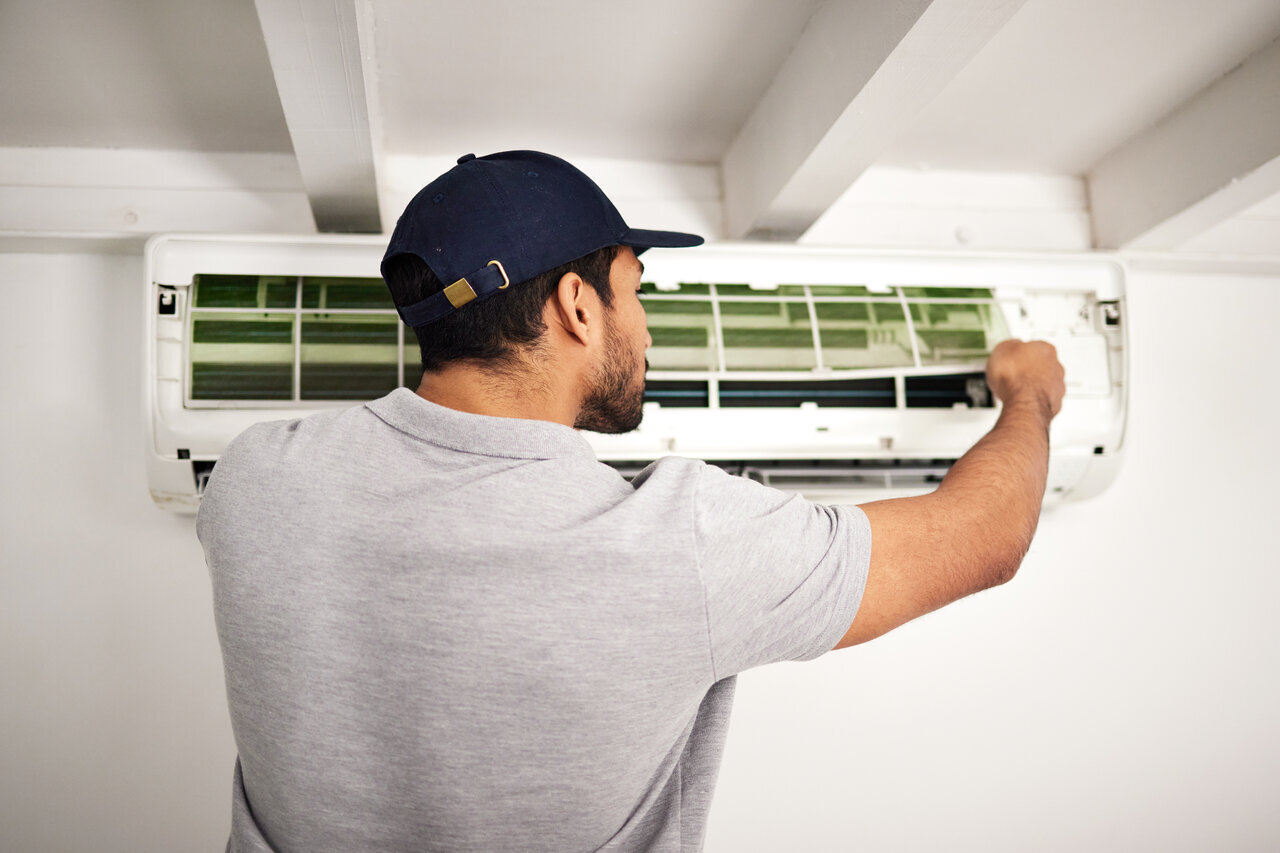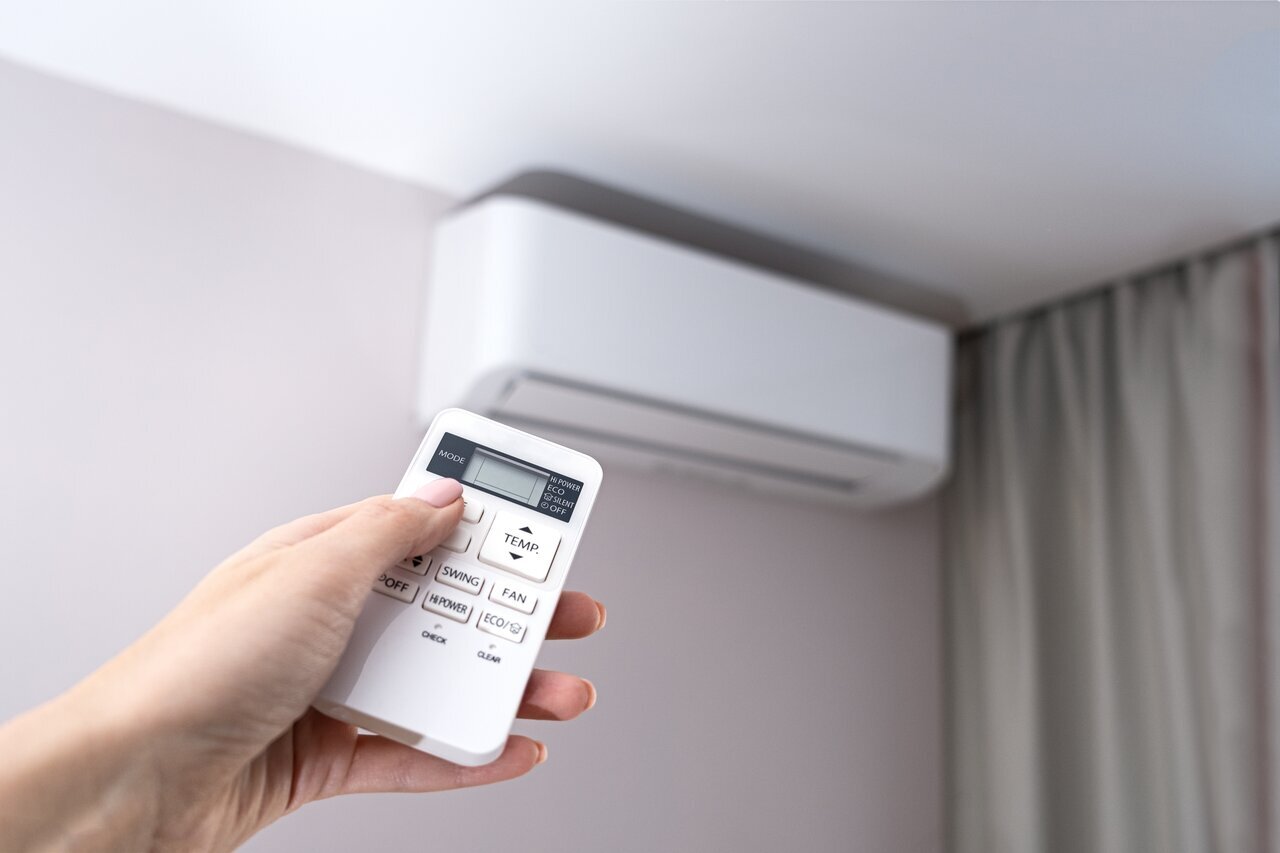Differentiating the Evaporator and Condenser Coils
As the scorching heat of summer engulfs us, our air conditioning systems become our best friends in maintaining a comfortable indoor environment. However, have you ever wondered about the vital components responsible for keeping your AC running smoothly?
We’re talking about AC evaporator coils and condenser coils. These coils play a pivotal role in transferring heat, ensuring that your AC unit cools the air effectively and keeps your living spaces comfortable, even on the hottest days.
If you’re not sure what these are or why they matter, don’t worry! We’ve got everything you need to know about evaporator and condenser coils.
In this blog, Morris Air & Electric will delve deep into the world of AC evaporator coils and condenser coils, shedding light on their working mechanism and the telltale signs that indicate it’s time for an AC coil replacement.
What Is an Evaporator Coil?
An evaporator coil is a key component of an air conditioning system that plays a crucial role in the cooling process. Located inside the indoor unit, the evaporator coil is responsible for absorbing heat from the surrounding air and evaporating refrigerant to create a cool and comfortable indoor environment.
An AC evaporator coil is used in most residential and commercial air conditioners. It works with a condenser to produce cold air, which cools down the surrounding area.
How Does an Evaporator Coil Work?
An evaporator coil is a heat-transfer device that uses the phase change of a working fluid to transfer thermal energy between two spaces. It’s most commonly used in refrigeration and air conditioning systems, where it helps to move heat from inside to outside.
The purpose of an evaporator coil is to change the temperature of the air that comes into a building, either by taking the heat out or adding heat to it. There are two kinds of coils: those that add heat and those that remove it.
When you turn on your heater in the wintertime, the coils in your heater will begin to warm up so that they can give off heat when needed. The same principle also applies to air conditioning systems—they need something to make cold air!
This is how it works: When the evaporator coil is cold, the refrigerant becomes a liquid and flows into the coil housed in a cooling chamber. The liquid then evaporates into a gas as it absorbs heat from the air or from the outside environment. The gas then flows through copper tubing to an outdoor compressor, where it is compressed back into a liquid before returning to the cooling chamber.
What is an AC Condenser Coil?
An AC condenser coil is a piece of equipment that is used to cool the condenser section of an air conditioning system. The air conditioner’s condenser coils are located in the back of the unit, and they are responsible for dissipating heat from the refrigerant in order to keep it at a consistent temperature.
These coils are made up of copper tubing, which is often wrapped in aluminum foil. This helps to increase their surface area and allows them to cool faster than if they were made out of one solid material.
How Does an HVAC Condenser Coil Work?
When the air in your home gets hot, it rises and then gets cooled off when it meets with the cold outside air. The cooler air returns to the house through a return duct, where it mixes with the warm air inside. This process creates an imbalance between hot and cool air, which causes your HVAC system to work harder to move both kinds of air throughout your home.
The condenser coil on your HVAC system takes care of this problem by cooling off the warm air as it passes through it. The cold refrigerant in your HVAC system absorbs heat from the surrounding air, helping to cool it down so that you can enjoy comfortable temperatures throughout your house without having to overwork your HVAC system!
Difference Between Evaporator Coil Vs. Condenser Coil
If you’re like most people, you probably don’t know much about your air conditioner coils. Both AC coils are crucial for maintaining efficient cooling performance and require regular maintenance to ensure optimal functioning.
If you’ve ever wondered about the difference between an evaporator coil and a condenser coil, today is your lucky day. We’re here to explain it all.
Here’s a comparison table highlighting the key differences between the evaporator coil and the AC condenser coil:
When to Replace Your Coils?
AC coils are part of your air conditioning system that turns the refrigerant into a gas used to cool the air. They can be made of copper or aluminum, depending on your AC system type.
The lifespan of an AC coil depends on how well it’s maintained and how often it’s used. Here are several signs that indicate it may be time to replace your AC coils:
- Age of the Coils: According to industry data, after 15 years, the efficiency of coils can decrease by as much as 40%, making replacement a wise choice to maintain optimal performance. The older they get, the harder they are to repair and the less efficient they become.
- Frequent Repairs: If your AC unit is constantly breaking down or requiring repairs, then this could be another sign that it’s time for a new set of coils. Research suggests that 80% of HVAC system failures are related to coil issues, emphasizing the need for replacement rather than repeated repairs. Most manufacturers say that repairs should only happen no more than once every two months for a properly maintained system.
- Refrigerant Leaks: Refrigerant leaks are a common problem, and studies estimate that 60-75% of AC units suffer from refrigerant loss over time. If you see small holes in the sides of your unit or if there’s a puddle of liquid on the ground below the unit, it’s likely that the refrigerant is leaking out. If this happens once or twice, it’s probably not enough to warrant replacement. However, if it happens regularly, you’ll eventually have to replace the parts.
- Reduced Cooling Capacity: If your air conditioner is blowing out warm air that feels less than refreshing, it might be time to replace the coils. The coils are responsible for cooling air before it enters the home and helps maintain a constant temperature throughout the house. If they’re not working properly, they’ll waste energy and money while failing to provide adequate cooling.
- Corrosion or Physical Damage: Corrosion and physical damage can affect coil functionality. According to research, 75% of AC coil failures are due to corrosion, emphasizing the need for replacement when significant damage is present. Moreover, if you see rust or other signs of damage, the coil has been compromised and could leak refrigerant. This is a very serious problem, as it can lead to contamination and water damage.
- Ice buildup on coils: Ice formation on coils is often a symptom of underlying issues, such as restricted airflow or refrigerant leaks. When this happens, it indicates that the coil is no longer efficiently removing heat from the air being cooled or heated in your home. This may indicate that there is a problem with the compressor or blower motor. However, it can also mean that you need to replace your AC coils. Research indicates that 75% of AC service calls related to ice formation require coil replacement.
- Inefficient Energy Usage: If your AC doesn’t seem to provide enough cooling or you’re noticing higher bills than usual, it might be time to replace your AC coils. The Department of Energy estimates that HVAC systems consume about 6% of total energy use in the United States, and poorly functioning coils can contribute to increased energy bills. This could mean that the airflow isn’t evenly distributed throughout the room, so certain spots are getting too cold while others aren’t receiving enough airflow.
- Inconsistent Airflow: If you notice that certain parts of your house feel cooler than others, then it’s possible that your AC coils are malfunctioning. This can lead to uneven temperatures throughout different rooms in your home or even cause some areas to get too hot (and possibly even damage furniture).
- Persistent Indoor Humidity: Persistent indoor humidity means that your air conditioning unit isn’t running as efficiently as it should be, which means it’s costing you more money than necessary. This can also cause severe damage to other parts of your HVAC system and even to your home or office building if left unchecked for too long. It is one of the first signs you need to replace your AC coils. It’s a good rule of thumb to replace them every 5 years, but if you’re experiencing persistent indoor humidity, it’s time to act.
- Expert Recommendations: If you have Orange County HVAC experts who come out regularly for AC maintenance and repair, ask them how long it’s been since they last checked your system and replaced any parts that were showing wear and tear. If it’s been a while since they’ve done any work on your system, it could be time for an upgrade! According to a survey, 85% of HVAC contractors recommend coil replacement when faced with severe coil damage or inefficiency.
8 Maintenance Tips For Air Conditioning Evaporator And Condenser Coil
Maintaining your air conditioning evaporator and condenser coil can be a real pain. But it doesn’t have to be! Here are some simple tips that will help keep your AC running like new for years to come.
- Keep your condenser coil clean.
- Check for a clog in the drain line that leads to the condenser.
- Make sure that your outdoor fan is operating properly.
- Remove leaves and debris from around the outdoor compressor unit to prevent overheating.
- Replace the AC filter every 3 months, depending on how much dust is in your area.
- Get an annual inspection from an AC repair and maintenance professional if you’re not sure what to look for.
- Check for leaks around the air conditioner’s drain connection, refrigerant lines, and compressor unit, then repair them as needed.
- Don’t forget to turn off your AC when it isn’t being used!
Schedule Regular AC Maintenance With Morris Air & Electric To Ensure Your AC Stays in Prime Condition!
If you live in Orange County, California, you know that an AC unit is one of the most important appliances in your home. It keeps you cool when it’s hot outside and warm when it’s cold. But if you don’t take care of it, your AC can become less efficient and even break down—making the heat or cold even worse!
If you don’t have the time or expertise to maintain your AC system yourself, we recommend a Regular Maintenance Schedule for Your Coils. Morris Air & Electric provides top-quality AC maintenance services for homeowners and businesses throughout Orange County, CA. We are fully licensed and insured and have been serving the area for over a decade now.
Our HVAC technicians are trained to handle all types of residential and commercial air conditioner repairs: from simple issues like clogged drains to more complicated ones like bad capacitors or faulty wiring.
Maximize your AC’s potential with our regular AC maintenance plans and rip several benefits, including:
- A clean, cool home that saves you money on energy bills.
- Peace of mind knowing your equipment is working as it should.
- Regular check-ups and maintenance.
- Upgrades, AC replacements, and AC repairs.
- 24/7 emergency service.
- Consistent AC performance.
- Reduced energy bills.
- Reduce the risk of breakage or malfunctioning of your heating and cooling system.
- The assurance that your home’s air quality is being maintained at the highest standard possible.
- The comfort of knowing a qualified HVAC technician is always available to repair your system if it breaks down.
- No more waiting around for the AC to stop working so you can get it fixed—we’ll come out regularly to check everything that needs checking.
- No more worrying about whether or not your AC is running efficiently—we’ll take care of that for you!
- No more stressing out about how much money you’re spending on your unit—we’ll ensure it’s running as efficiently as possible at all times, saving you money!
Our affordable AC maintenance plans will keep your AC running efficiently and help ensure that you stay cool when it matters most. The best part is that every plan comes with a 100% satisfaction guarantee. If you’re not happy with our service, we’ll make it right!
So, if you’re in Orange County and want to make sure your AC is working as it should be, call us today at (833) 482-2349 for regular AC maintenance and repair services!






